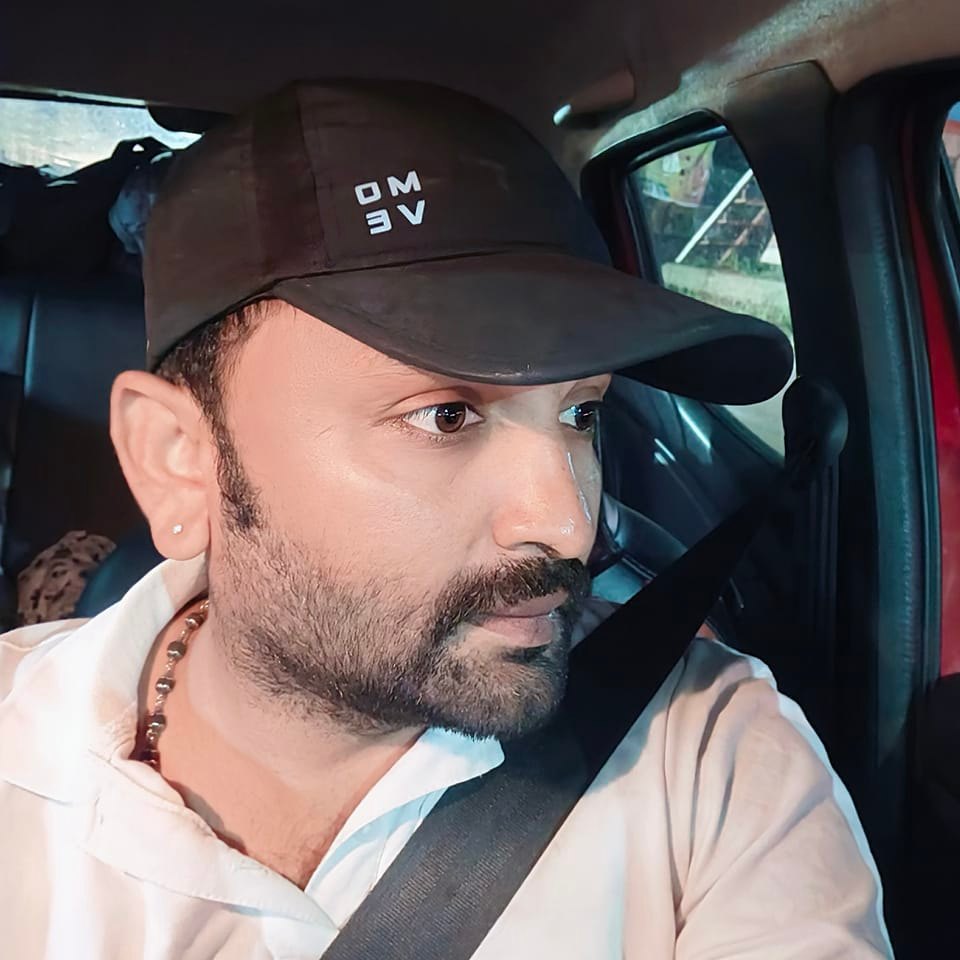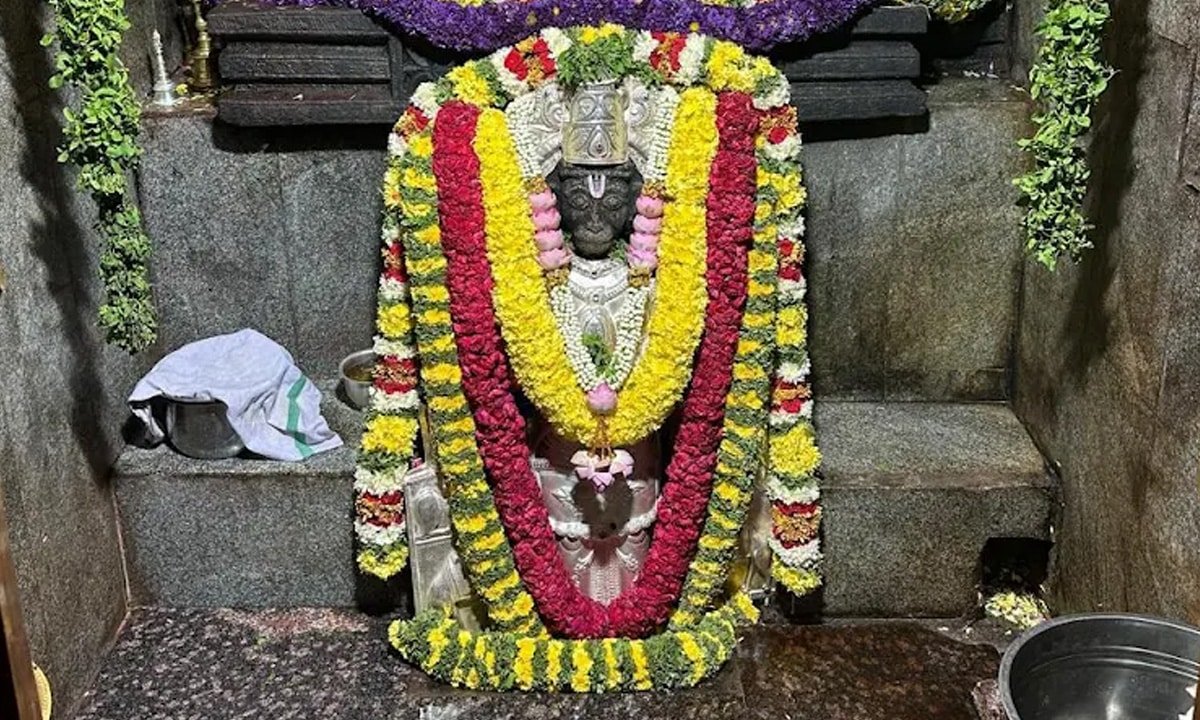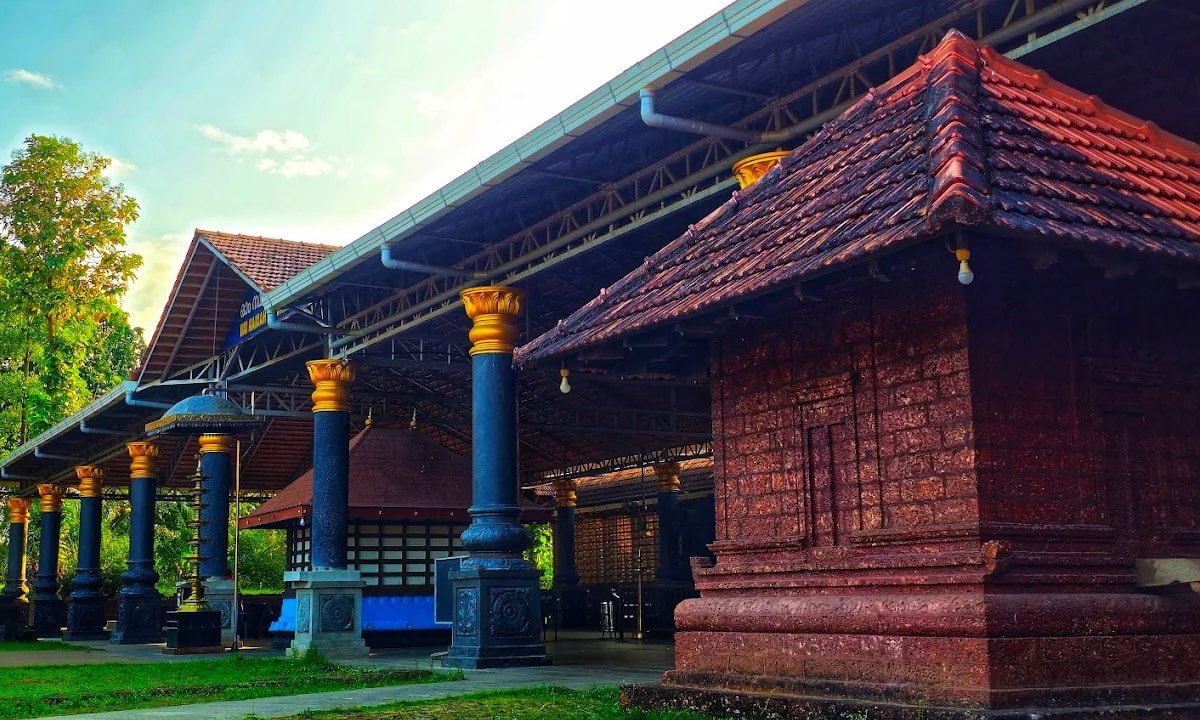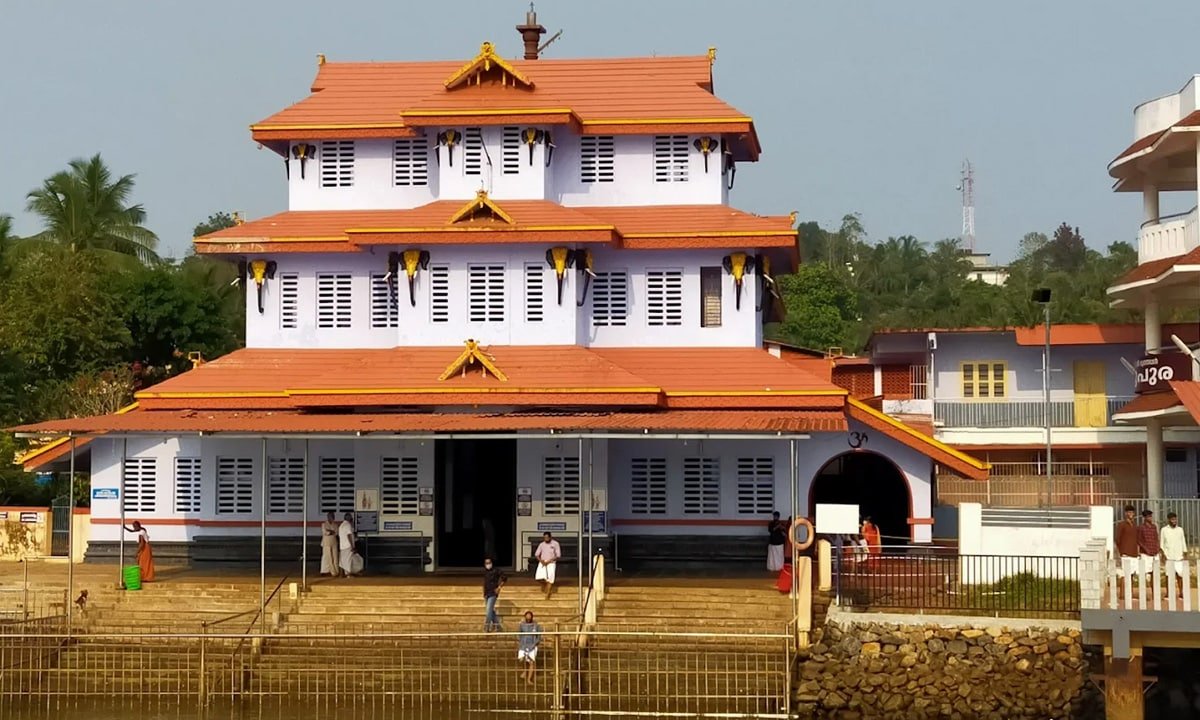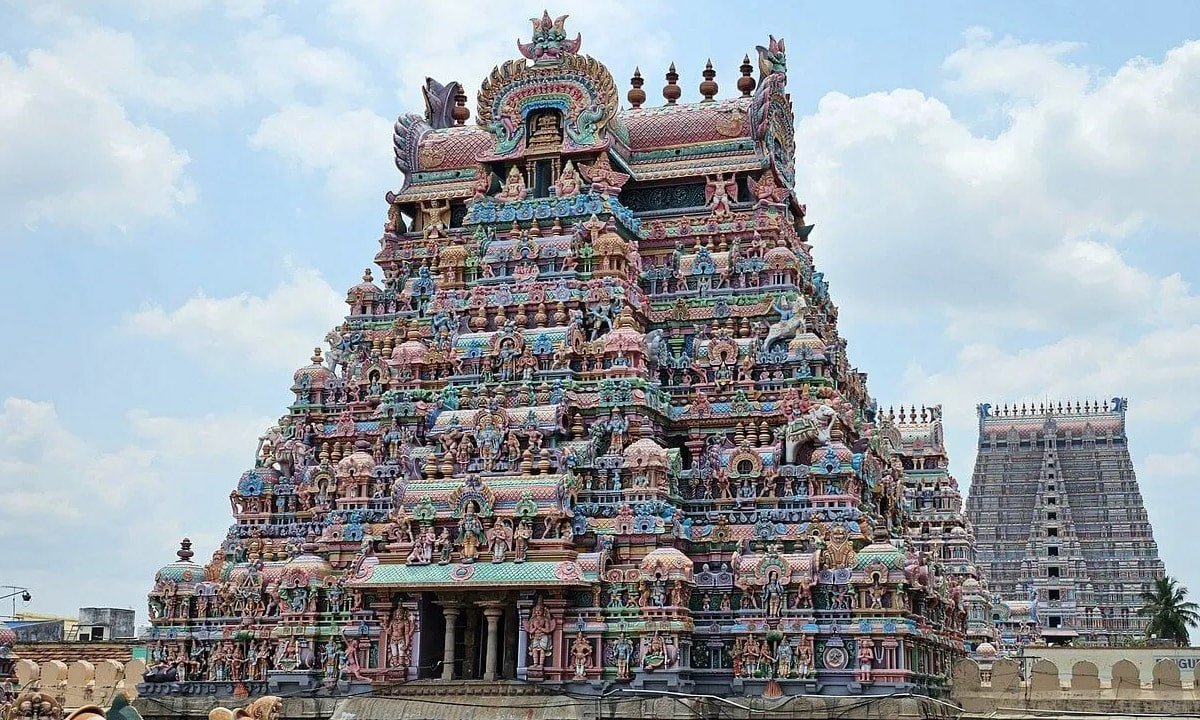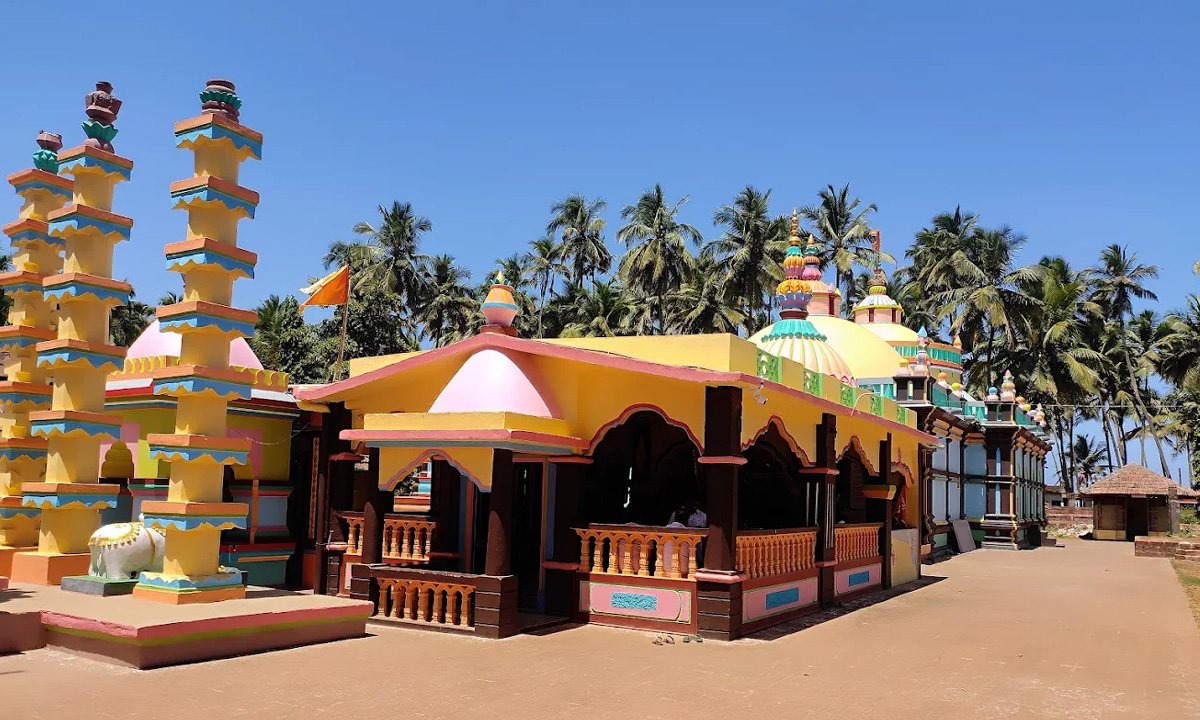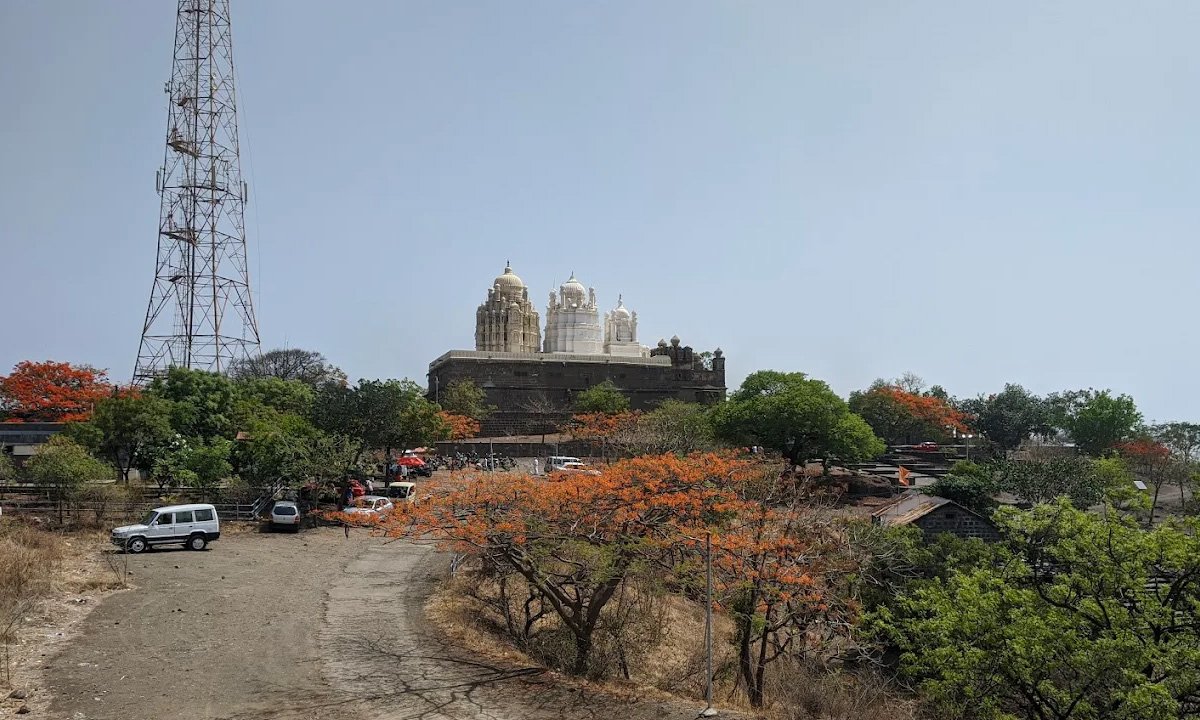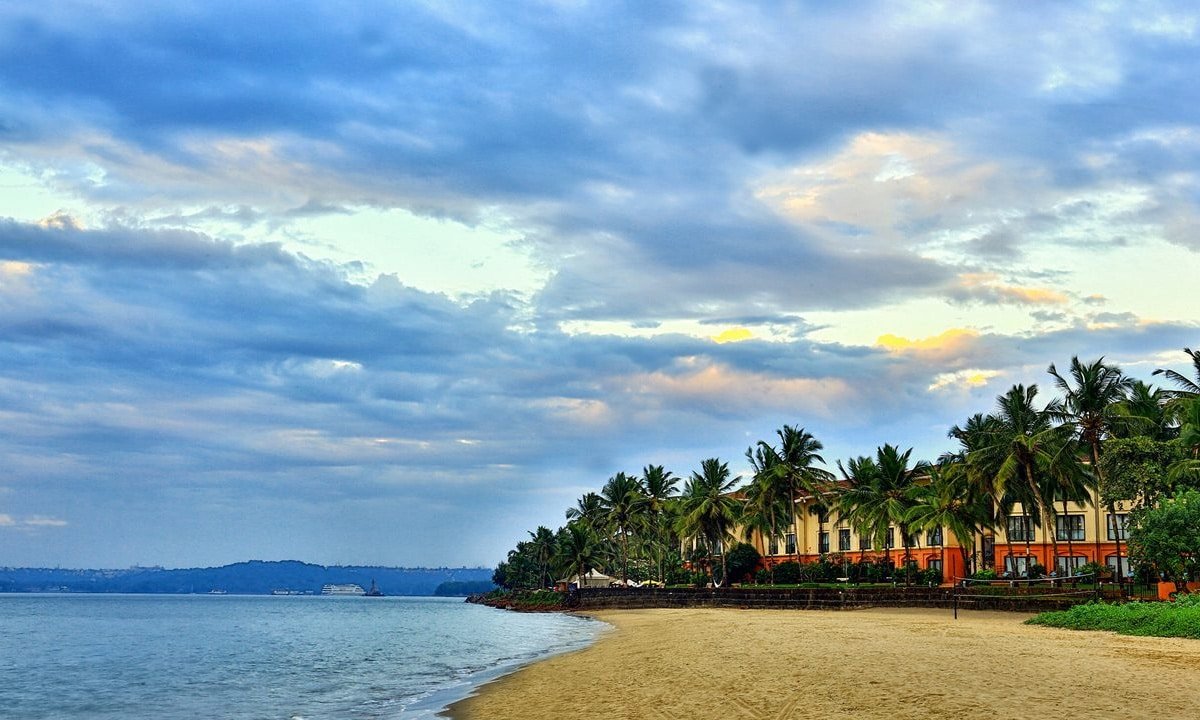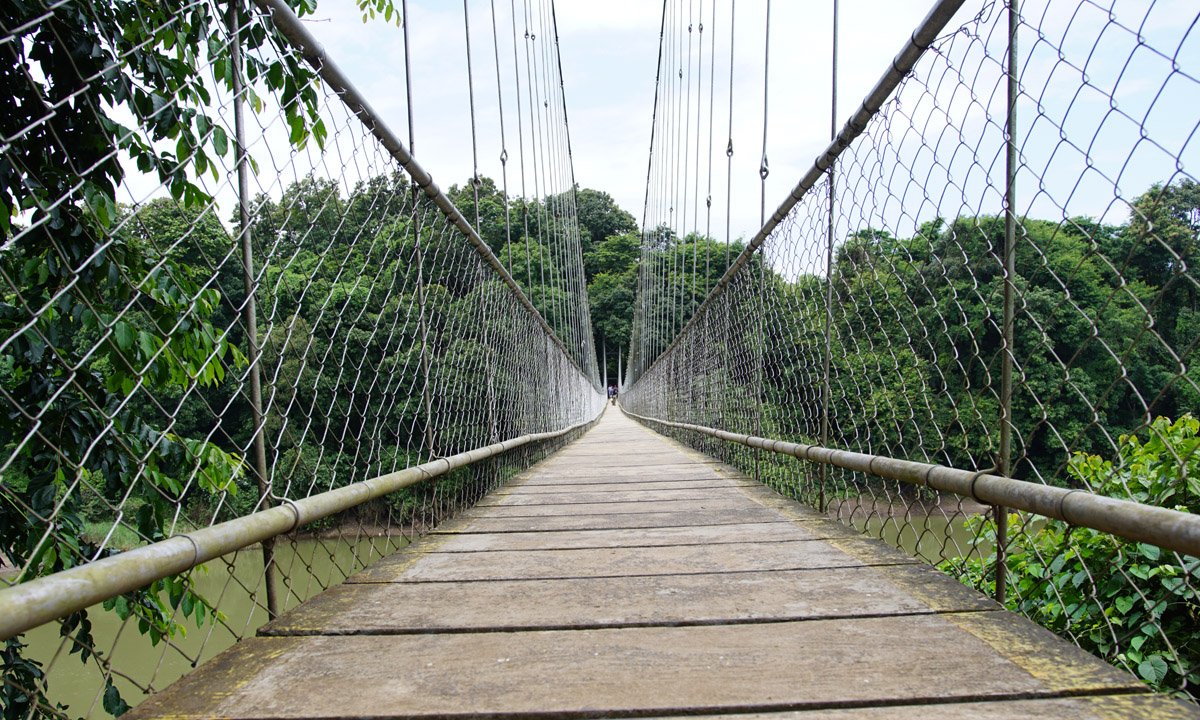Arulmigu Dhandayuthapani Swamy temple is one of the famous Murugan temples. It is present in the Palani town of Dindigul district in Tamil Nadu. In the foothills of the Palani hills, the Murugan Temple is present. The Palani temple timings are 05:30 am to 9:30 pm.
The Temple is on the higher of the two hills and is called the mountain Sivagiri. The traditional elephant’s path forms the way to this Temple. The distance of the Temple from Coimbatore is about 100 km.
History of Palani Temple:
Contents
- 1 History of Palani Temple:
- 1.0.1 Palani Temple Timings:
- 1.0.2 Best time to visit:
- 1.0.3 Temple Sevas Timings:
- 1.0.4 Temple Sevas Ticket Costs:
- 1.0.5 Festivals Celebrated at the Temple:
- 1.0.6 Palani Temple Online Booking:
- 1.0.7 Alangaram timings:
- 1.0.8 Kumbabhiskeham:
- 1.0.9 Annadanam at Temple :
- 1.0.10 Golden Chariot online booking:
- 1.0.11 Tourist places near the Temple:
- 1.0.12 Hotels near Temple:
- 1.0.13 Palani Temple Dress code:
- 1.0.14 Palani Temple Contact Details:
- 1.0.15 How to Reach the Dandayuthapani Swamy Temple:
- 1.0.16 FAQs:
- 1.1 How long does it take to walk Palani Hill?
- 1.2 What are the steps in the Palani Temple?
- 1.3 How much time is needed to see the Palani Temple?
- 1.4 Are there any restrictions on entry for non-Hindus?
- 1.5 Are there any specific rules or guidelines to follow inside the Temple?
According to one legend, the sage Narada went to Kailash to present the Gyanapalam to Lord Shiva. Lord Shiva says he would divide the fruit into two halves and share it among his sons. But Narada disagrees with cutting the fruit.
So, he decides to award the fruit to the son who first circles the world thrice. The sons accepted the challenge, and Lord Kartikeya started his worldwide journey on his peacock.

But Lord Ganesha feels his parents as the world circles them three times. Lord Shiva impresses Lord Ganesha’s thinking and then awards him the fruit. When Karthikeya returns home, he knows that his efforts are a waste.
So, he leaves Kailash in frustration and then stays in the Palani/Sivagiri hills. Hence, the Palani Temple originated here in the Palani/Sivagiri hills.
Palani Temple Timings:
The timings are 05:30 am to 9:30 pm.
| Days | Timings |
| Monday | 05:30 am to 9:30 pm |
| Tuesday | 05:30 am to 9:30 pm |
| Wednesday | 05:30 am to 9:30 pm |
| Thursday | 05:30 am to 9:30 pm |
| Friday | 05:30 am to 9:30 pm |
| Saturday | 05:30 am to 9:30 pm |
| Sunday | 05:30 am to 9:30 pm |
Best time to visit:
The best time to visit the Arulmigu Dhandayuthapani Swamy is during the festival of Thai Poosam, which usually falls in January or February.
It is a significant time when devotees flock to the Temple to seek blessings. However, the Temple can be visited yearly, with less weekday crowding.
Temple Sevas Timings:
The Temple sevas timings are here
| S.No | Timings | Darshan/Puja |
| 1 | 05:40 am | Viswaroopa Darshan |
| 2 | 05:40 am | Darshan |
| 3 | 05:40 am | Vila Puja |
| 4 | 06:00 am – 06:50 am | Darshan |
| 5 | 06:50 am – 07:15 am | Sirukalasanthi |
| 6 | 07:15 am – 08:00 am | Darshan |
| 5 | 08:00 am – 08:25 am | Kalasanthi |
| 6 | 08:25 am – 09:00 am | Darshan |
| 7 | 09:00 am – 09:25 am | Uchikala Puja |
| 8 | 09:25 am – 12:00 pm | Darshan |
| 9 | 12:00 pm – 12:25 pm | Sayaraksha Puja |
| 10 | 12:30 pm – 05:30 pm | Darshan |
| 11 | 05:30 pm – 05:55 pm | Rakaala Puja |
| 12 | 06:00 pm – 08:00 pm | Darshan |
| 13 | 08:00 pm – 09:00 pm | Temple closing hours |
Temple Sevas Ticket Costs:
Palani Temple sevas ticket costs are here
| S.No | Darshan Type | Normal Days Ticket cost | Special Days Ticket cost/person |
| 1 | Special Darshan | Rs.10 | Rs.20 |
| 2 | Viswaroopa Darshan | Rs.100 | Rs.200 |
| 3 | Vila Pooja | Rs.150 | Rs.300 |
| 4 | Sirukalasanthi | Rs.150 | Rs.300 |
| 5 | Kalasanthi | Rs.150 | Rs.300 |
| 6 | Uchikalam | Rs.150 | Rs.300 |
| 5 | Sayaratchai | Rs.150 | Rs.300 |
| 6 | Rakkalam | Rs.150 | Rs.300 |
Festivals Celebrated at the Temple:
The Palani Temple celebrates several festivals throughout the year. Here are some of the prominent festivals observed at the Temple:
Thai Poosam:
It is the most important festival at the Temple, celebrated in the Tamil month of Thai (January/February). Devotees make pilgrimages to the Temple, carrying kavadis and performing various acts of devotion.
Panguni Uthiram:
Celebrated in the month of Panguni (March/April), this festival marks the celestial wedding of Lord Murugan and Goddess Valli.
Skanda Sashti:
Skanda Sashti is a six-day festival commemorating Lord Murugan’s victory over the demon Surapadman. It usually falls in the Tamil month of Aippasi.
Vaikasi Visakam:
Celebrated in the month of Vaikasi (May/June), Vaikasi Visakam commemorates the birth anniversary of Lord Murugan.
The nine-day Navaratri festival was dedicated to worshipping the divine feminine.
Karthigai Deepam:
Celebrated in the Tamil month of Karthigai, Karthigai Deepam is the festival of lights. The Temple had been illuminated, and a giant oil lamp was lit atop Palani Hill, signifying the divine presence of Lord Murugan.
Palani Temple Online Booking:
The devotees can book the Palani Murugan temple online using the process below. So, go through the steps below to book the temple darshan ticket online. There are also other online services like Prasadam booking and so on.
- Go to the official website of Temple.
- You can find different options available for online services on the home page.
- Select the appropriate option from the available options.
- Select the date and time slot and then click on Proceed.
- Fill in all the details required to complete the booking form.
- Then, pay the amount, if any.
- Submit the request for booking the slot.
Your online booking is complete, and you can print your ticket.
Alangaram timings:
It is done six times daily at Arulmigu Dhandayuthapani Swamy Thirukkoil, Palani, Alangaram. The following are the timings for different Alangaram types. Every time, you can see a huge bell rung in the Temple to indicate the Alangaram.
| Pooja | Alangaram type | Timings |
| Vizhapooja | Sanniyasi Alangaram | 6:40 AM – 7:15 AM |
| Sirukala Sandhi | Vedan Alangaram | 8:00 AM – 8:30 AM |
| Kalasandhi | Balasubramaniar Alangaram | 9:00 APM – 9:30 AM |
| Uchikkalam | Vaitheekal Alangaram | 12:00 PM – 12:30 PM |
| Sayarakshai | Raja Alangaram | 5:30 PM – 6:15 PM |
| Rakkalam | Pushpa Alangaram | 8:30 PM – 8:00 PM |
Kumbabhiskeham:
The most awaited devotional ceremony, Kumbhabhishekam, was grandly performed at Arulmigu Dhandayuthapani Swamy Thirukkoil at Palani in 2006. After 17 years, it was again performed 2003 on January 27th with thousands of devotees.
On this special occasion, the temple authorities decorated the Temple beautifully with flowers. They performed the Kumbh Mela between 8:30 am and 9:30 am. The ritual is performed in addition to other devotional chants and regular rituals.
The priests of this Temple carry the pots that contain the holy water to reach the temple top, start the Abhishekam at 9:00 am and continue it. After the Abhishekam, Mahadeeparadhana is performed shortly afterwards.
Annadanam at Temple :
At Arulmigu Dhandayuthapani Swamy Thirukkoil, delicious food is served to the devotees every day from 8.00 am to 9.00 pm. Thousands of devotees enjoy eating the food served daily, considering it the Thiruvamudhu of the Lord.
On regular days, nearly 5,000 devotees can enjoy eating this food. On special days, about 6,000 devotees enjoyed eating this food. Devotees can pay Rs. 3,500 to contribute 100 persons to the Annadhanam scheme.
Golden Chariot online booking:
Palani Temple is one of the famous temples that millions of devotees visit daily. Every day, devotees participate in the rituals performed in the Temple, and the Golden Chariot is one of the religious rituals. This seva starts at 7:00 am every day, and pilgrims can participate by booking the tickets online.
The Temple has a golden chariot, and the priests place the Murugan idol on it and carry it into the Temple. Many families participate in this seva; the ticket price is Rs . 2000/- for two people. Tickets are available online.
Tourist places near the Temple:
- Idumban Temple
- Shri Periya Nayaki Amman Temple
- Kundrathur Murugan Temple
- Varathamanathi Dam
- Kannadi Perumal Temple
- Palar Dam Palani
- Sree Ayyappan Temple
- Arulmigu Koniamman Temple
- Gedee Car Museum
Hotels near Temple:
- Hotel Subam
- Ganpat Grand
- Hotel Vels Court
- Vasavi Cottage
- Hotel Divine Fort
- Arunachal Inn
- Jayam Hotel
- Ponnis Hotel
- Hotel Amoha
Palani Temple Dress code:
This is a holy place where devotees come to pay their homage to the god. Before visiting this Temple, devotees must follow the dress code. According to the rules, men must wear a Dhoti, a shirt, pyjamas, or pants. Women devotees must visit wearing traditional attire like a saree, half-saree, or churidar. Devotes who visit this Temple wearing lungis, leggings, or any other Western outfit are not allowed into the Temple.
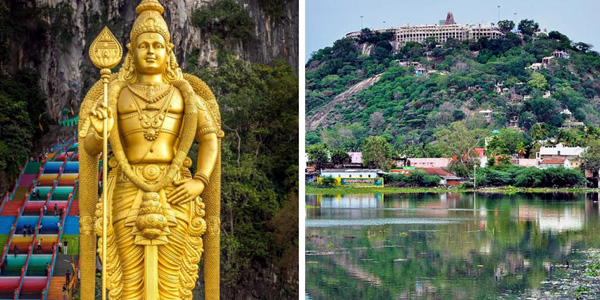
Palani Temple Contact Details:
- Address: Arulmigu Dandayudhapani Swami Devasthanam, Palani, Dindigul District, Tamil Nadu, India.
- Contact Numbers: +91-4545 – 242 293, 04545 242 236, 04545 242 236
- Official Website
- Email: palanimurugan@tnhrce.com
How to Reach the Dandayuthapani Swamy Temple:
By Air:
Madurai is the nearest airport at 114 km.
By Rail:
Palani has a railway station. So, people can travel by train here.
By Road:
It has a route to nearby cities that can be travelled by private or public vehicles.
FAQs:
How long does it take to walk Palani Hill?
There are 693 stairs leading up to the Hill Temple, located at a height of 500 feet. The only time commitment required for step climbing is between 30 and 60 minutes.
What are the steps in the Palani Temple?
One has to climb 689 steps to reach it.
How much time is needed to see the Palani Temple?
Roughly, it should be 2 to three hours. It should be more if it is a special day like Sankaranthi, Tamil New Year’s Day, or during an extended weekend. When you reach the Temple, you can make out by asking the people coming out of the darshan.
Are there any restrictions on entry for non-Hindus?
The Temple is primarily a Hindu temple, and there may be restrictions on entry for non-Hindus.
Are there any specific rules or guidelines to follow inside the Temple?
Devotees were expected to maintain decorum and follow the instructions given by the temple authorities. It is customary to remove footwear before entering the Temple and to keep silence and cleanliness within the premises.


